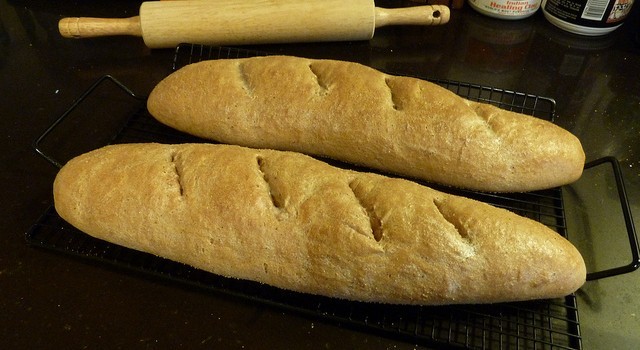On one hand, we’ve got people telling us that it is extremely harmful, with one doctor calling it poison. Then on the other hand, we've got dietitians and the government telling us that whole wheat is an essential part of a “balanced” diet. Well… one inescapable fact is that humans have been consuming wheat, in one form or another, for thousands of years. It is an old food… and most diet-related diseases are relatively new.
The modern day gluten-free mania and marketing is creating a backlash. People who are sick of it fall back on “inconclusive” studies or dismiss gluten concerns altogether. Unfortunately, gluten-free fare is often filled with junk ingredients, which creates more distrust.
Many trending diets have cut grains altogether; others say that's throwing the baby out with the bathwater. While Paleo cuts out the whole food group, organizations like Weston A. Price recommend avoiding all refined products and using traditional methods of fermentation and soaking. Books like Wheat Belly and Grain Brain aptly scrutinized the genetic engineering and other issues – via radiation – that mutates the product willy-nilly. It's true, most of today's grain products bear decreasing resemblance to our great-grandfather's food.
Is there a way to enjoy bread – real bread today? One wheat-breeder says yes.
Tom Philpott of Mother Jones reports:
Stephen Jones, a wheat breeder at Washington State University, suspects that we've been scapegoating the grain when we should be blaming the oven. Before I explain why, let me make clear that Jones is no apologist for Big Wheat. Back in 2003, the industry-dominated Washington Grain Commission threatened to stop funding his program after he refused to work with genetically modified varieties owned by the agrichemical giant BASF. He eschews conventional breeding—which he believes is all about generating bland strains tailored to the needs of corporate producers—for his own method, which prioritizes flavor.
Even so, Jones doesn't buy the notion that the modern breeding he shuns is causing bad reactions to bread. “It's not wheat itself,” he says, pointing to a 2013 study by the US Department of Agriculture that found “no evidence” of increasing levels of gluten in wheat over the decades. Rather, Jones believes that the true problem with bread is how we make it. In commercial bakeries, rising time has been winnowed from hours or even days down to mere minutes, thanks to fast-acting yeasts and additives. By contrast, the team in Jones' laboratory, located in a rural stretch along Puget Sound, lets dough rise for as long as 12 hours—and they've found that the longer it rises, the less potent the gluten that remains in the finished bread.
It’s the same as with many other modern foods… when scientists try to “enhance” what nature has already provided us with, things tend to go wrong. In the case of wheat, this ancient diet staple was accidentally turned into a modern health nightmare. If you care about your health and can’t get your hands on the older varieties of wheat, then do yourself a favor and avoid wheat like the plague.
Please Read this Article at NaturalBlaze.com
Photo Source: Cary Bass-Deschenes





Leave a Reply